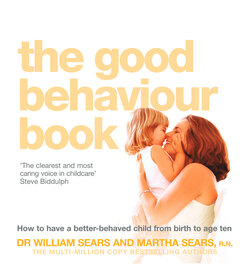Читать книгу The Good Behaviour Book - Марта Сирс - Страница 33
an exercise in sensitivity
ОглавлениеBecause of misguided teachings from “experts”, some mothers have to go through “deprogramming” before they can let themselves respond naturally. Try this exercise: When a baby cries (yours or someone else’s), examine the first feeling that comes over you. Does the cry bother you in the right way, prompting an irresistible urge to lovingly pick up and comfort the baby? Or does the baby’s cry trigger insensitivity: “I’m not going to let this little person control me.” If you have a less than nurturing response, you are at risk for a disappointing disciplinary relationship with your child, and you need to learn more about the needs of tiny babies and to rethink the giving end of parenthood.
A mother I counselled in my surgery during a prenatal interview was worried that she wouldn’t be a good mother. I asked her how she feels when she hears babies cry. She responded, “I just can’t stand to leave a baby crying. I want to rush over and pick that baby up. It bothers me to see other mothers ignore their babies’ cries.” I assured this woman that she was very likely to be a good mother because she had the quality of sensitivity. Cries bother sensitive women – and men too. Cries are supposed to bother us.
Attachment parenting organizes babies. To understand better how attachment parenting organizes infant behaviour, think of a baby’s gestation as lasting eighteen months – nine months inside the womb, and at least nine more months outside. The womb environment regulates the baby’s systems automatically. Birth temporarily disrupts this organization. Attachment parenting provides a gentle, sensitive, external regulating system that takes over where the womb left off. When a mother carries her baby her rhythmic walk, familiar from the baby’s time in the womb, has a calming effect. When the baby is cuddled close to his mother’s breast, her heartbeat reminds him of the sounds of the womb. When baby is draped across mum or dad’s chest, he senses the rhythmic breathing. Being kept warm and held close calms him and helps him control his reflexes. This high-touch style of parenting, with its emphasis on keeping the baby comfortable, has a regulating effect on the infant’s disorganized rhythms. Baby knows where he belongs. With his needs for food, warmth, comfort, and stimulation receiving predictable responses, the attachment-parented baby is physiologically better off. A 1993 study compared sleep-wake patterns and heart rates of breast- and bottle-fed babies. The breastfed babies showed more energy-efficient heart rates and sleep patterns. They were more organized. The researchers concluded that a baby who isn’t breastfed is like an engine out of tune.
